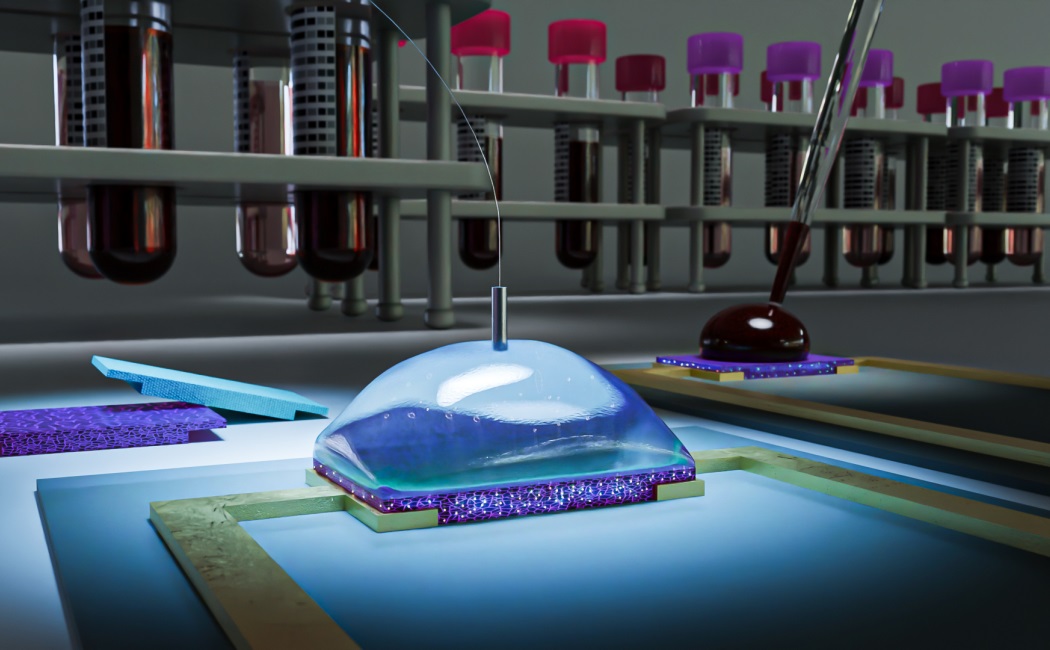
Building better biosensors from the molecule up
29 June, 2025
Organic electrochemical transistors (OECTs) are innovative devices that could be made into implantable biosensors, or used to analyze biological samples to help diagnose illnesses. KAUST researchers have studied how the semiconducting polymers inside OECTs interact with ions in the samples — a crucial step in designing materials that tune the performance of these devices for particular applications.
“The technology is rapidly advancing, and some OECT-based probes have already been used in clinical research settings, particularly in neuroscience for the brain–electronic device interfacing,” says Sahika Inal, who led the research. In biosensing applications, she explains, OECTs could operate directly in blood, sweat, or saliva; they might also be used to detect viruses or other pathogens in liquid samples.